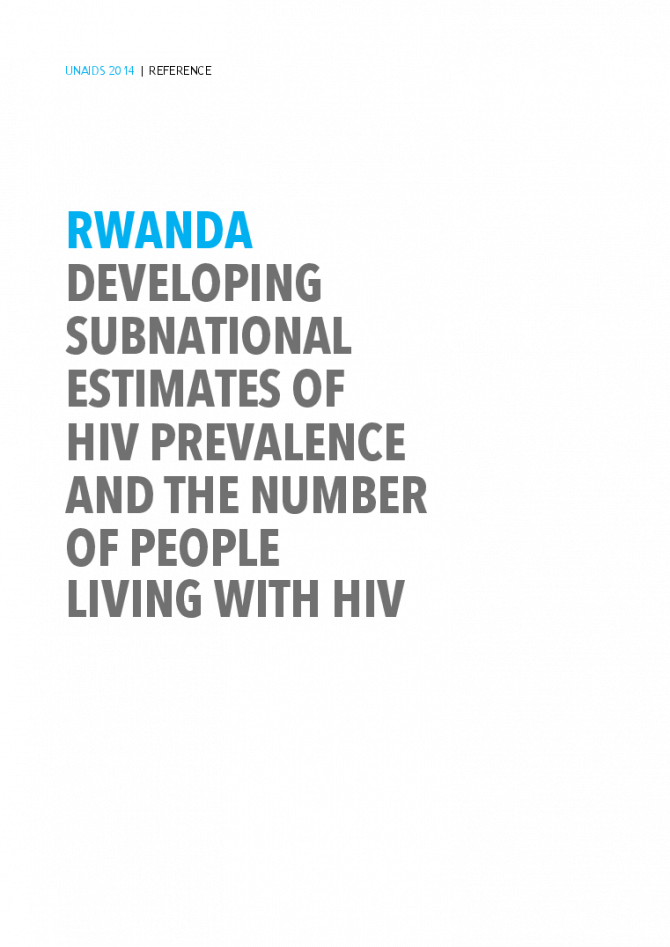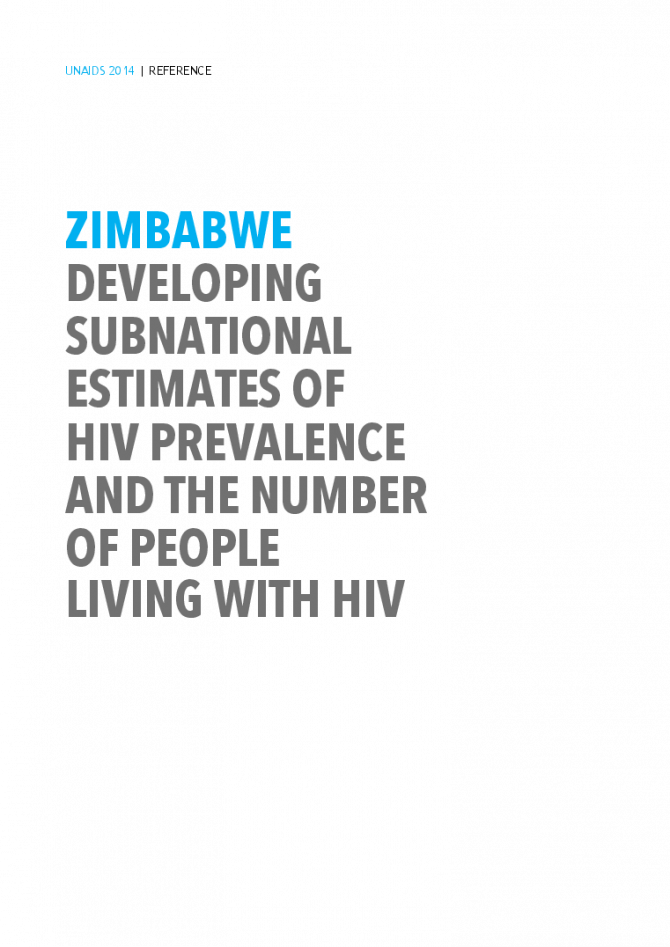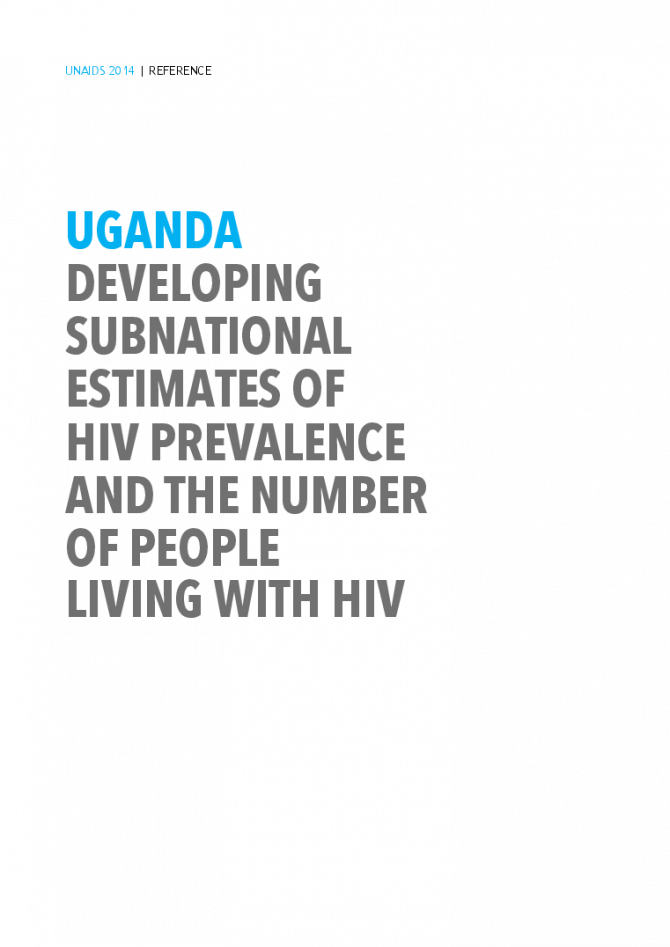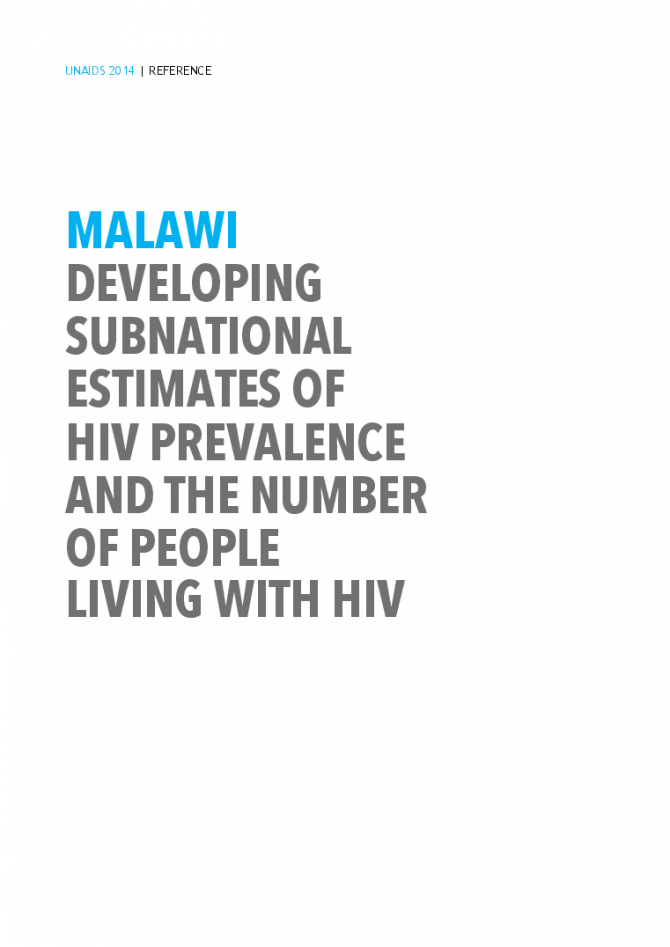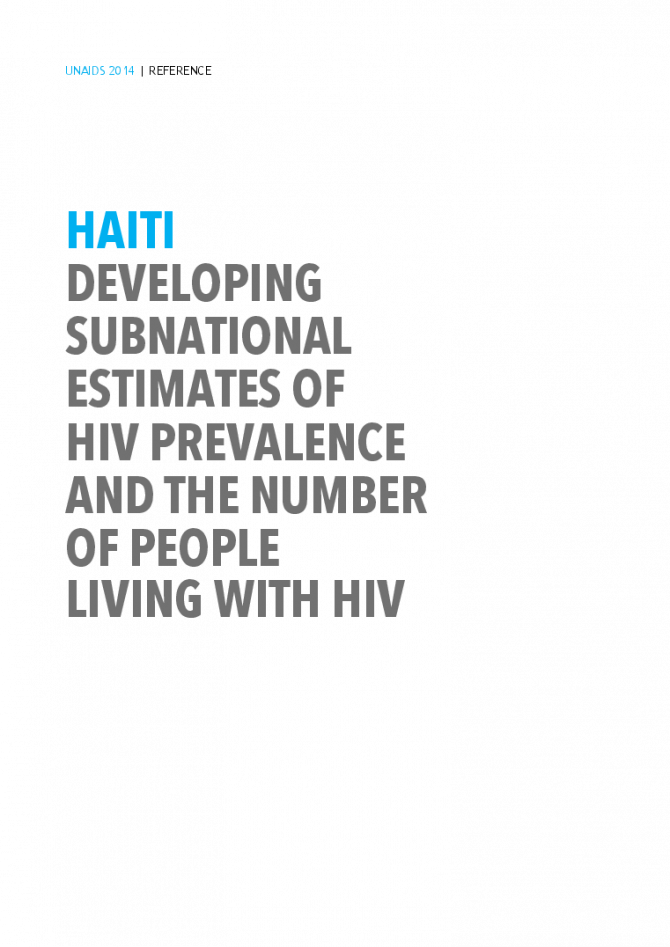Documents
Rwanda: Developing subnational estimates of HIV prevalence and the number of people living with HIV
15 December 2014
This guidance note describes existing methods to generate subnational estimates of HIV prevalence and the number of people living with HIV from survey data, with a particular focus on the development of maps of estimates at second administrative level through the prevR model as a data visualization resource.
Documents
Zimbabwe: Developing subnational estimates of HIV prevalence and the number of people living with HIV
08 December 2014
This guidance note describes existing methods to generate subnational estimates of HIV prevalence and the number of people living with HIV from survey data, with a particular focus on the development of maps of estimates at second administrative level through the prevR model as a data visualization resource.
Documents
Uganda: Developing subnational estimates of HIV prevalence and the number of people living with HIV
08 December 2014
This guidance note describes existing methods to generate subnational estimates of HIV prevalence and the number of people living with HIV from survey data, with a particular focus on the development of maps of estimates at second administrative level through the prevR model as a data visualization resource.
Documents
Tanzania: Developing subnational estimates of HIV prevalence and the number of people living with HIV
08 December 2014
This guidance note describes existing methods to generate subnational estimates of HIV prevalence and the number of people living with HIV from survey data, with a particular focus on the development of maps of estimates at second administrative level through the prevR model as a data visualization resource.
Documents
Malawi: Developing subnational estimates of HIV prevalence and the number of people living with HIV
08 December 2014
This guidance note describes existing methods to generate subnational estimates of HIV prevalence and the number of people living with HIV from survey data, with a particular focus on the development of maps of estimates at second administrative level through the prevR model as a data visualization resource.
Documents
Lesotho: Developing subnational estimates of HIV prevalence and the number of people living with HIV
08 December 2014
This guidance note describes existing methods to generate subnational estimates of HIV prevalence and the number of people living with HIV from survey data, with a particular focus on the development of maps of estimates at second administrative level through the prevR model as a data visualization resource.
Documents
Haiti: Developing subnational estimates of HIV prevalence and the number of people living with HIV
08 December 2014
This guidance note describes existing methods to generate subnational estimates of HIV prevalence and the number of people living with HIV from survey data, with a particular focus on the development of maps of estimates at second administrative level through the prevR model as a data visualization resource.
Documents
Guinea: Subnational estimates from survey data
08 December 2014
This guidance note describes existing methods to generate subnational estimates of HIV prevalence and the number of people living with HIV from survey data, with a particular focus on the development of maps of estimates at second administrative level through the prevR model as a data visualization resource.
Documents
Côte d'Ivoire: Developing subnational estimates of HIV prevalence and the number of people living with HIV
08 December 2014
This guidance note describes existing methods to generate subnational estimates of HIV prevalence and the number of people living with HIV from survey data, with a particular focus on the development of maps of estimates at second administrative level through the prevR model as a data visualization resource.
Documents
Burundi: Developing subnational estimates of HIV prevalence and the number of people living with HIV
08 December 2014
This guidance note describes existing methods to generate subnational estimates of HIV prevalence and the number of people living with HIV from survey data, with a particular focus on the development of maps of estimates at second administrative level through the prevR model as a data visualization resource.

